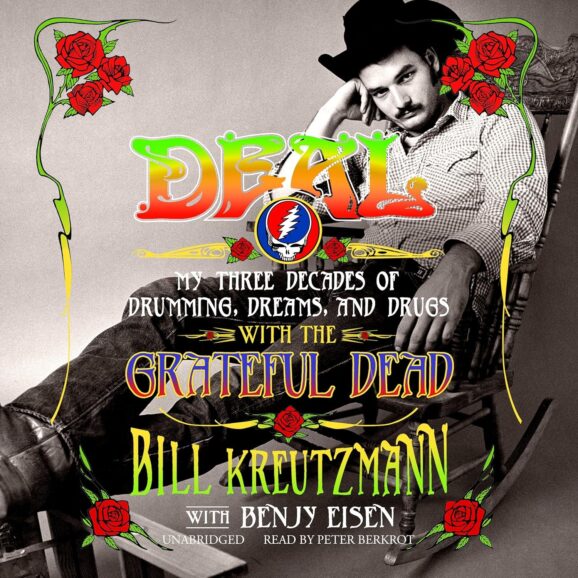In 1972 and ’73, Neil Young released an album and film titled Journey Through The Past, and now, over a half-century later, he is once again conducting a similar sojourn with FU##IN’ UP (all caps are intentional). It is a logical extension of his archiving in recent years wherein the inscrutable musician/songwriter has proven how malleable his art is: see the alternate versions of previously-released albums in the Archives II box set, not to mention the initial clutch of titles in his Official Bootleg Series. And then there’s the aural scrapbook of 2023’s Before and After.
This latest project is reworking one of the pinnacles of the man’s discography, the 1990 album with Crazy Horse Ragged Glory. Initially available for Record Store Day on April 20th, then released on a widespread basis six days later, the music in this form was recorded in November of 2023 at Toronto’s Rivoli with Young in the company of bassist/vocalist Billy Talbot, drummer/vocalist Ralph Molina, guitarist/keyboardist/vocalist Nils Lofgren (a 1970 discovery of Neil’s, former leader of Grin and a member of Springsteen’s E Street band since 1984) and guitarist/keyboardist/vocalist Micah Nelson (from his band of brother Lukas’ Promise of the Real).
Although the Canadian rock icon references the original song titles on the inside cover (often but not always via indirect excerpts from lyrics), Young renamed all of the songs featured on FU##IN’ UP. Minus “Mother Earth,” a notable non-sequitur in the original track sequence, the nine tracks featured on this counterpart LP are all Neil’s except for “Farmer John.”
Fifty-plus years later, the upper pitch of Neil’s voice is not all that different than on the sixth album with Crazy Horse. And his corrosive, staccato style of distortion-drenched lead guitar remains essentially the same too, though as evidenced on “White Line,” he plays with markedly less of the sonority he injected in the studio takes. There’s little difference in these arrangements compared to the originals either, except for a short harmonica break that suits “Days That Used To Be.”
Long-time compatriots in The Horse, drummer Ralph Molina and bassist Billy Talbot, sound as steady as ever here. Respectively swinging way and pulsing ever-so-insistently, the duo hit only the notes that matter and never seem to flag in their metronomic rhythms. And there is no denying the glee with which they play and sing this title song.
Not that it’s easy to hear all their vocal harmony parts or those of keyboardist/guitarist bandmates Lofgren and Nelson. But this less-than-pristine sonic quality is no doubt a purposeful replication of the house sound that evening as captured and preserved, in all its murky fidelity, by Young’s long-time technical crew recordist Tim Mulligan and mixing engineer John Hanlon.
Intentionally or not designed to fit the concept within Young’s retort to a grouchy fan in the early going of 1997’s live release Year Of The Horse—’it all sounds the same!’– these seventy minutes are indeed ‘one long song.’ Sustained feedback at the end of the opening “Country Home” finds its corollary with piano at the opening “Mansion on the Hill,” and similar linkage of the selections continues for the duration of FU##IN’ UP.
No readily discernible breaks are no doubt a result of Neil’s editing work and that of his Volume Dealers co-producer Niko Bolas. The gesture consequently places topical focus on the choruses of the album’s closing selection, “Love And Only Love,” particularly those appearing near the end of the fifteen minutes.
Pertaining to the current state of America’s domestic affairs as fully as to the sound of this band in action (vis a vis a ‘ragged glory’), the repetition of those observations/sentiments generates increasing impact with each successive, increasingly heated delivery of the words: ‘hate is everything you think it is…love and only love will break it down!’.
Only time will tell if this record is the precursor to the release of other studio outtakes from the Ragged Glory sessions (Neil has twice announced such issues, neither of which came to pass). Regardless, hearing this loud outing may spur more than a few listeners, rabid fans of the man and otherwise, to seek out the original (or its 2021 corollary Way Down in the Rust Bucket).
If and when that happens, their rediscovery of the value of the piece may mirror Young’s own perception. His wizened view is one that, based on his allusive liner notes as well as the decision to issue these performances, not to mention the fervent musicianship, that perspective carries no small amount of justifiable pride.


































